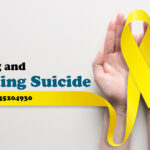Trichotillomania is an Impulse control disorder where a person gets uncontrollable urges to pull one’s hair. Its more common in females in a ratio of 10:1 and can lead to baldness or scalp infections. Here we have Meena ( Name changed ) narrating her real story of how suffering from trichotillomania feels like and what makes this disorder different from other problems. She is currently seeking professional help which has helped reduce some of her issues..
I think I remember when I started pulling out my hair. It must have been when I was around eleven or twelve – back then, boys in my school would think it fun to tug at girl’s ponytails, maybe rip out some strands. I, however, wanted to make a point and show that it didn’t hurt me. I’m not sure how it developed in the following years, my memory is clouded. When I was about 13 years old, I had this pressure on my head that could only be resolved by tying my braid so tightly it would take over the pulling effect for me. Then it was uncomfortable from one day to the next and I plucked the hairs that were tied too tightly; first from the top, then in the following years, it wandered down to behind my ears and my lower head. I remember feeling miserable at days, just staring down into the garbage can, where I dropped hair after hair after hair. I just remember a feeling of hopelessness – I didn’t know why I was doing what I was doing, but I sure knew that on some days, I would just sit for twenty minutes, maybe half an hour, not able to separate my hand from my head. Tugging constantly, plucking out sometimes one hair at a time, sometimes whole bushes.
I don’t remember when I first read about trichotillomania – my school counsellor sure hadn’t heard of it before, but maybe she suggested me to google it up, thinking that I was pulling as a coping mechanism for something. But at some point, Google told me clearly: “What you have, love, is an impulse control disorder, and it’s called trichotillomania.” It was then that I realized that not only am I unhappy with what I am doing, not only does my head feel like exploding before I pull and even after I pull, but also is this wrong. It’s a disorder, that I may never get rid of, but which might get worse and better.
Over the years, I have observed different pulling habits: When I am angry, my head feels like exploding, and then I just tug at as many hairs as possible to get them off my head and free up that specific little spot on my scalp that feels like bursting. I have realized that if I brushed my hair or if someone massaged my scalp, this would also satisfy the impulse, the burning sensation I had on my scalp. It’s really the psychosomatic pain impairs me most: My head and scalp hurt if I don’t pull, and they hurt even when I do pull. When previously asked to explain what relief pulling gives me, I drew an analogy to having a cactus thorn in your finger: you don’t really feel the thorn itself, but your entire finger is just pulsating and it’s the only thing your senses can focus on. You keep picking at it, trying to get the thorn out. Once you get it out, the tension drops and you feel free, finally relieved of that thorn that has caused you all the burning.
A second pulling-type is when I have my hands somewhere on my head, and am somewhat feeling around for uneven hairs; hairs that are crinkled a bit, that have an odd texture, that somehow don’t belong. When I find a hair like that, I pull it out, look at it, maybe run it between my lips, maybe twirl it around my finger, and then discard it to the floor. It’s not that I am on a personal mission to eradicate abnormal hair from my scalp that is craving cleansing. My thought process isn’t anything like that – in fact, I don’t really have a conscious thought process. Rather, finding a hair that feels out of place gives me kind of tactile satisfaction. Touching and feeling it gives me relief.
What has been most interesting for me to review is how people perceive trichotillomania. I have encountered people who shrugged it off, saying “oh but that’s nothing bad! It’s just pulling out hair, right?” I have also encountered people on the other extreme, like my hairdressers, who almost appear disgusted. I have wondered much what they are disgusted at – is it my bald spots looking ugly? Is it that my body seems defective because it sends out orders to my brain to pull out my own hair? Disgust, fundamentally, is nothing else but a natural behaviour through which people seek to avoid “contamination” with something sick, broken, or inferior. My body with its pulling and its bald spots appears defective – the expression of disgust is a reaction to this. My “disabled” body just is not clean and successful.
Recognition for trichotillomania is still depressingly absent – trichotillomania has featured in a few horror films, yes, but accurate representation has not yet truly taken place. Apart from two pay-only documentaries which are difficult to access, the mainstream movie “Young Adult” features a protagonist, who, alongside having depression and alcoholism, is shown four times attempting to pull or pulling her hair. However, the condition is not explained, and an untrained viewer may not even notice it.
Trich has haunted my life for the past nine years. I may be vocal about my hairpulling online, and use it as a case study for some sociological analysis, but I still hide it far too often, and I still need to conjure courage before telling someone about trich. But overall, knowing what that’s like first-hand is a unique opportunity for me to become an advocate in refining the concept of mental illness and the forms it can take. Learning more about psychology and sociology has worked wonders for me – instead of hopelessness, I now feel curiosity. Instead of wanting my illness to go away, I am now intrigued to know why it’s there in the first place. Admittedly, nobody really knows what causes trichotillomania. I find myself trying to find out whether it’s caused by bio-chemical factors – if it were, then I’d have a scientific explanation in which I do not pull out my hair because of a lack of self-control, but because of some factors I have no control over. My quest for an answer has given me ways to find meaning in my mental illness – mental illness it may be in my head, it may be on my head, but creative ways to live with it are also all inside my head.
At some points, I had almost reduced my pulling to only mindless pulling whenever I was sitting and waiting. This is due to both conscious efforts to stop, but also due to environmental changes. For over half a year, I even tracked my own pulling habits with an app (first ‘Slightly Robot’, then ‘TrichStop’), which I opened every time I noticed myself pulling and recorded the number of hairs I had pulled out. During a year when I barely had time to even relax, my pulling got better and better – my app showed I had stopped pulling for two days straight. We all do things to relieve our pain. The question is if we do it long-term or short-term – succumbing to my pulling gives me the temporary relief of having removed that cactus thorn, but long-term causes me scalp infections and unhappiness. I am trying so hard to redirect that energy into something positive, and create long-term strategies for myself. This blogpost is a partial attempt at that strategy: It meant as an advocacy tool for mental illness, and a way to reach out to others who seek understanding.







